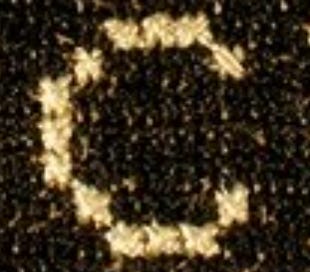C is for Comstock
Anthony Comstock was a prude who engineered an 1873 law that forbade mailing “obscene materials,” banning the circulation of contraceptives, abortifacients, and books that talked about sex. Today, anti-abortion activists threaten to revive Comstock as a way to halt the provision of abortion pills across state lines.
Comstock was a classic anti-vice campaigner. He had his cake and ate it too: condemning what was called “racy reading” while spending much of his life searching it out and inspecting it.
He enlisted in the Union Army as a weedy 19-year-old. His military service was spent marking time in an underutilized unit that had previously suffered great losses. Comstock was shocked by his fellow soldiers. The war was a boon to the porn industry, which mailed paper-covered books to the troops at a reduced rate. Many were illustrated, so even illiterate soldiers partook. Comstock’s war experiences: social isolation and boredom profoundly shaped his aversion to racy reading.
After the war, Comstock moved to New York City, starting as a porter in a dry-goods store, quickly rising to become a salesman for a reputable company. His lodging house was in a neighborhood full of saloons, sex workers, and gambling halls, but he preferred to relax at the YMCA.
Comstock was convinced that racy reading was a slippery slope leading to perdition. In his Frauds Exposed, he depicted the unhappy fate of a Long Island girl who went missing. Her father found her dead in the city, killed by an abortionist. Comstock never explained how obscene literature had led to this sad outcome; for him, it seemed obvious. Indeed, he may have invented the story.
A law prohibiting obscene literature, including “articles for immoral use” (contraceptives and abortifacients) had been passed by the New York state legislature in 1868, and Comstock became a small-time informer, arresting book sellers and contraceptive merchants. The law wasn’t much good in practice. Repeatedly, the police had already been paid off, and arrests went nowhere.
While I find Comstock’s over-eager prurience repulsive, I have to give him credit. He invented his dream job. Twice. Impressed by his diligence, the YMCA higher-ups offered him a position as Secretary of the New York Society for the Suppression of Vice in 1873. That same year, with the passage of the Act, Comstock became the first Special Agent of the Post Office.
Comstock spent the rest of his life hunting obscenity. In 1880, he gleefully tabulated 10 tons of printed material; 202,769 dirty pictures; 4185 boxes of abortion pills, and 64,094 contraceptive devices, destroyed in a mere six years.
Banning reproductive control didn’t end it. Manufacturers marketed pills with the names of herbs that generations of women had relied upon to end pregnancies. Rubber-goods merchants delicately titled their products with words like “hygiene”. But such subterfuge must have made it more difficult for women to access needed medical care.
Want to know more?
Judith Giesberg, Sex and the Civil War: Soldiers, Pornography, and the Making of American Morality, (University of North Carolina Press, 2017).
Amy Werbel, Lust on Trial : Censorship and the Rise of American Obscenity in the Age of Anthony Comstock, (New York: Columbia University Press, 2018).
Nicola Beisel, Imperiled Innocents: Anthony Comstock and Family Reproduction in Victorian America, (Princeton, 1997).
Even more? Read my book!
Image credit: Martha Coggeshall (nicknamed Patty) stiched this while at school in Bristol, England, in 1792. https://www.metmuseum.org/art/collection/search/14049?ao=on&showOnly=openAccess&ft=sampler&offset=0&rpp=40&pos=3
Disclaimer: Today I’d refer to pregnant “people,” but in the historical times that I write about, pregnancy was a female thing, and ideas about abortion were strongly shaped by gender politics.




